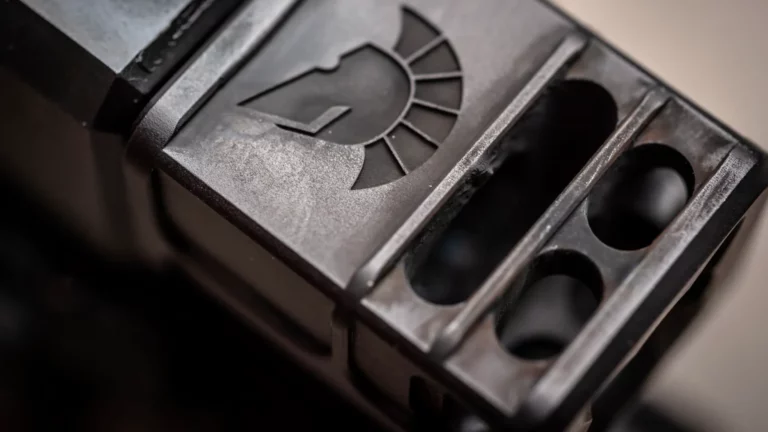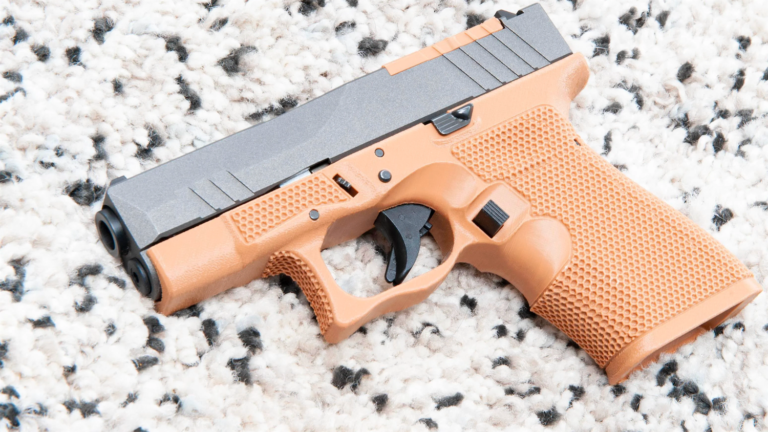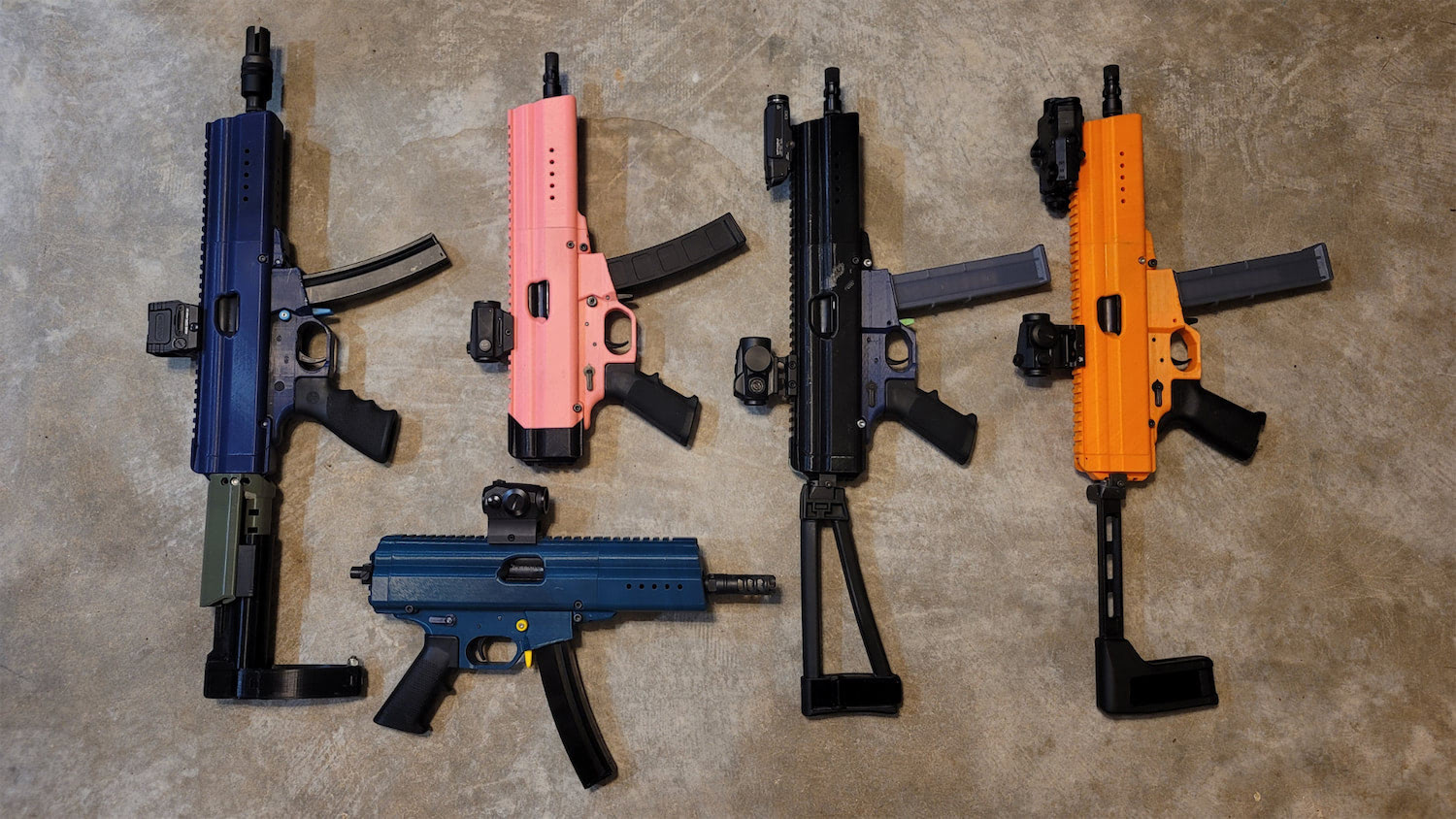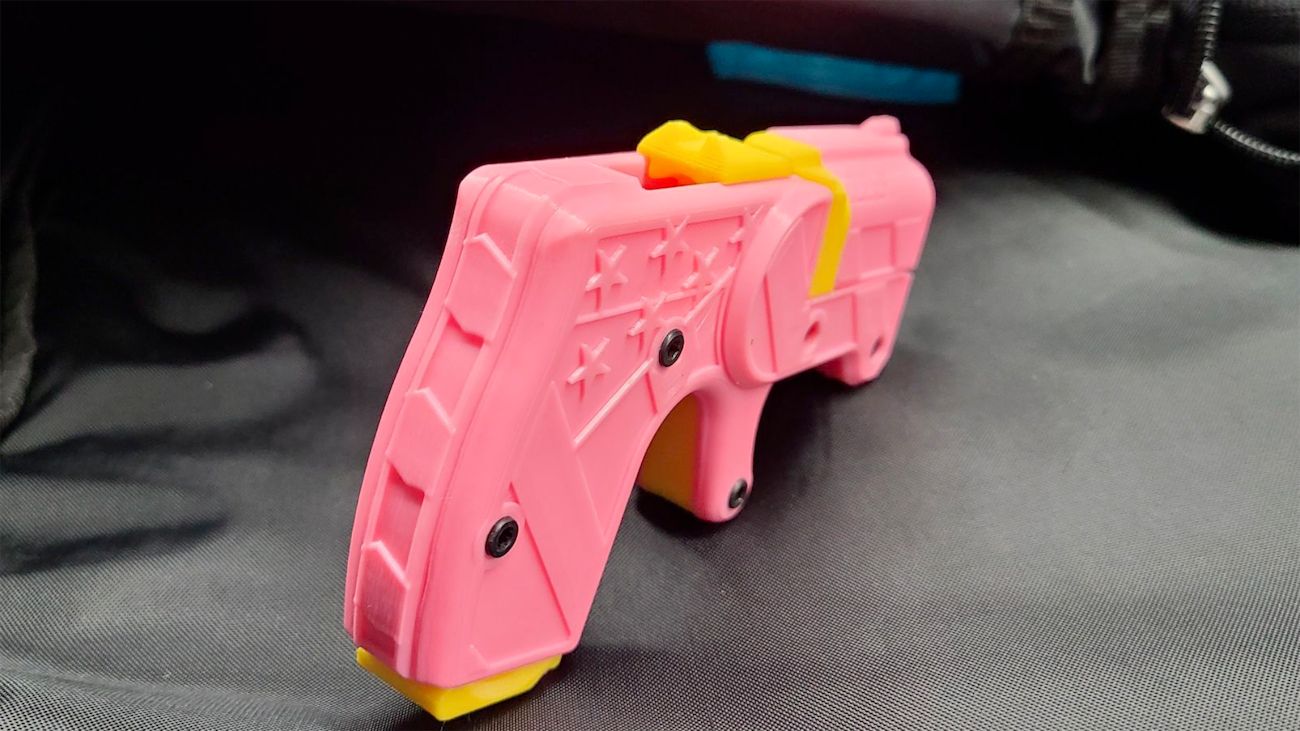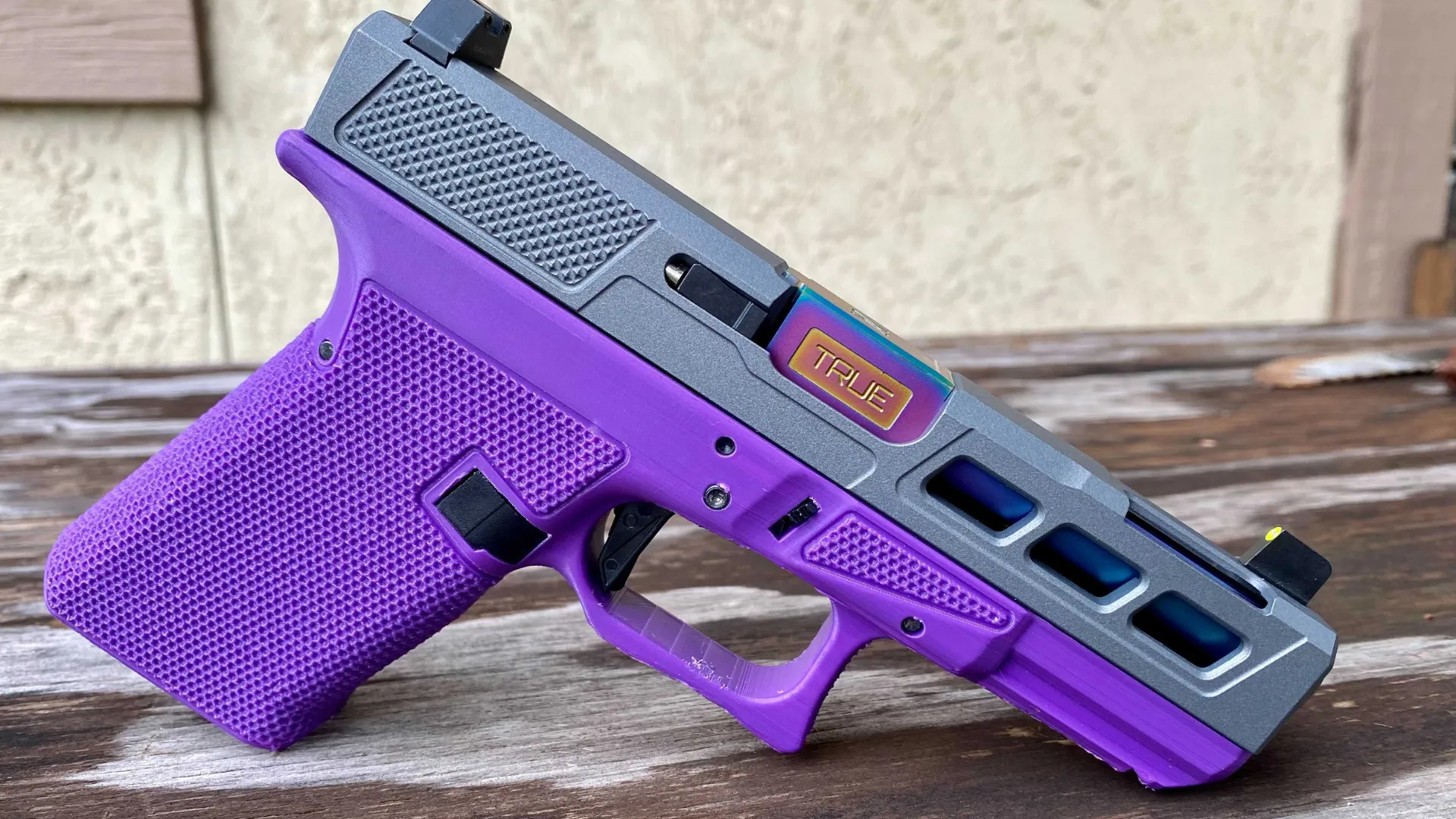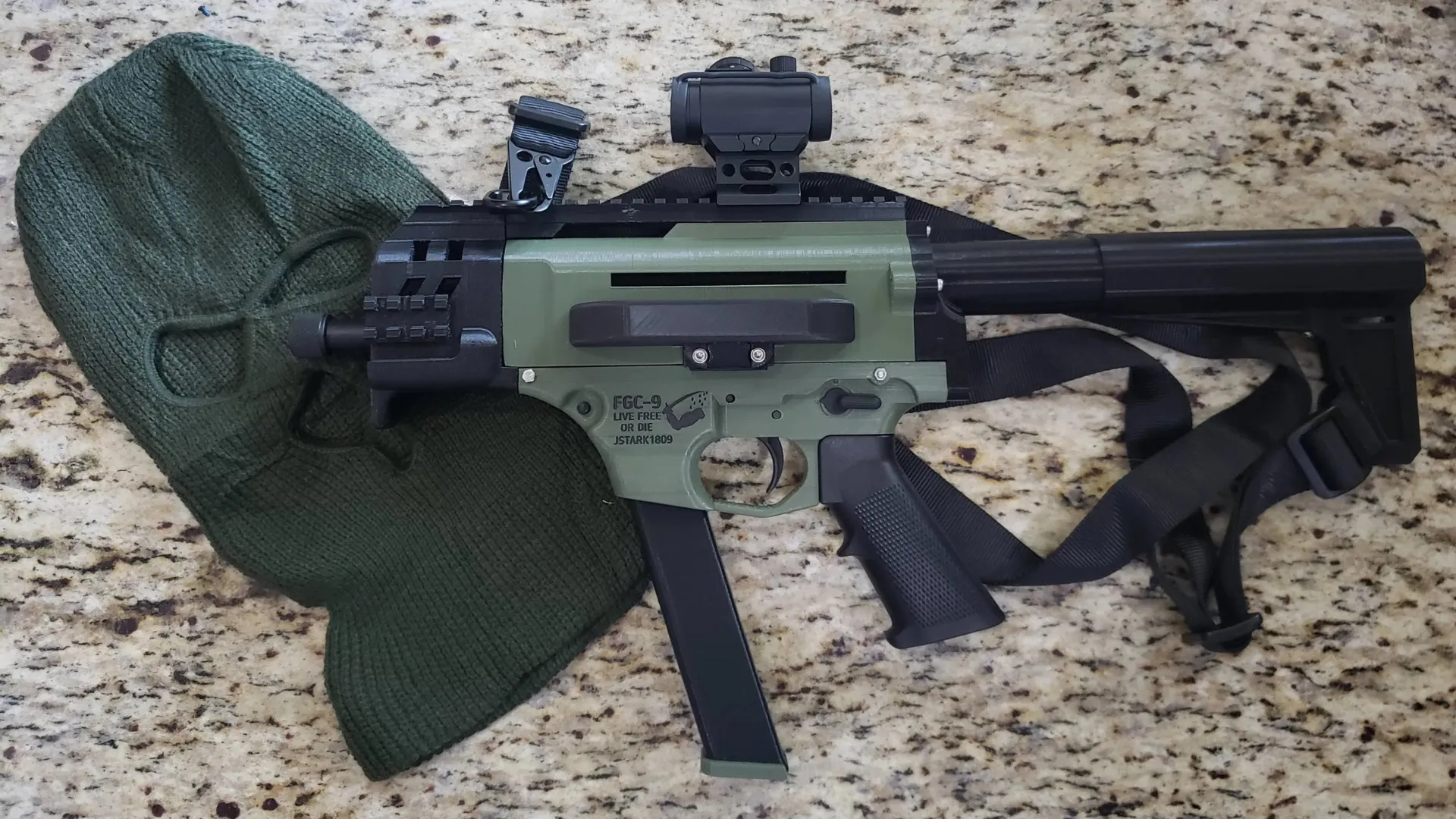In recent years, the rifle barrels have come alternated from the factory so that the person using them can add a muzzle device such as a muzzle brake or a compensator.
Since then, many people have started to compare the muzzle brake vs compensator while having difficulty understanding the difference between the two.

The confusion extended to lever-action rifles designed for hunting and the tactical arenas. Many rifles on the market come with thread protectors, and some utilize a muzzle device.

Even though the muzzle device is a flash suppressor, some laws in different states consider them evil characteristics. On the other hand, a muzzle brake and a compensator are perfectly legal gun upgrades.
If you are aware that the two have similar functionalities but are different tools, and you are contemplating between muzzle brake vs compensator, my article is perfect for you.
Keep reading to learn the differences and determine what fits your needs.
What Is the Difference Between Muzzle Brake and Compensator?
The muzzle brake is a device that operates on the recoil. The tool can decrease the shooter’s recoil and improve its accuracy.
Additionally, there is far less slam on the shooter’s shoulder when the bullet leaves the chamber.
On the other hand, a compensator is a device that improves the balance of the muzzle flip. On top of that, it gives the shooter a chance to return to their target immediately. Picture John Wick and his need for quick follow-up rounds.

As I mentioned, the muzzle brake is specifically designed to decrease the amount of recoil felt by the shooter, which makes the device more suitable for bigger caliber guns.
The purpose of the compensator is to keep the muzzle from rising off target quickly after the shot is fired. Both of the devices can be mounted at the end of the barrel.
What Is a Muzzle Brake?
This device is attached to the weapon at the end of the barrel. The recoil felt from the firearm originates at the muzzle. Therefore, the muzzle brake has the purpose of reducing the recoil.
The gadget can drastically improve the aim and accuracy as a secondary purpose, allowing the shooter much quicker follow-up shots.

When combined with a suppressor, the muzzle brakes can behave like a sacrificial blast baffle. In comparison, not the same as a sound baffle, the signature sound of the firearm will decrease.
Additionally, the muzzle brake may prolong the suppressor’s life.
One bad side of the muzzle brake is that it can change the sound direction of the weapon and make it a bit louder.
Pros
- Offers a lot of recoil reduction
- Can successfully act as a flash suppressor
- Reduction of the recoil drawback felt by the shooter
- Minimizes gas blowback
- It can diminish the rise of the muzzle
Cons
- A little pricey
- May increase the sound of the weapon
What Is a Compensator?
A compensator is a device that also falls into the muzzle category but works differently than the brake. The role of the gadget is to minimize the muzzle climb or reduce the muzzle flip.
Many companies that manufacture this device claim that it can also decrease the recoil, which is not totally true. The working process of the compensators is much different than muzzle breaks.

The compensator reroutes the muzzle blast and gasses downward, preventing the weapon from rising during the first firing sequence.
The MP5 submachine gun, which you have probably seen in many movies, was the first weapon with a compensator designed specifically for it. The compensator ports are perfectly angled to pressurize the gun downward.
The MSR rifles were the first to allow the compensator to return in the modern age.
Pros
- Prevents the muzzle from shaking and keeps it stable
- Diminishes the muzzle rise
- Allows quicker follow-up shots
- Provides more accuracy and enhanced precision
- May help with recoil reduction
Cons
- Makes the weapon louder than usual
- It cannot act as a flash suppressor
Muzzle Brake vs. Compensator – Working With Suppressors
The suppressors are hybrid muzzle attachments of guns that most people are known to call silencers. Although a muzzle brake can diminish the muzzle blast and impulse in the rifle, it can definitely not operate as a suppressor.
Because each tool has limitations, incorporating muzzle brakes offers more functionality for the firearm.
The origin of the weapon’s sound cannot easily be pinpointed to the suppressor. A good combination with muzzle brakes is a flash suppressor because it allows the flames to come out at the end of the barrel.
For a shooter on the range, a sound suppressor is not a priority, and accuracy is far more important. Without a suppressor on the muzzle device, the shooter’s sight will not be focused on the target.
Attaching a compensator with a suppressor on a rifle can also be very beneficial. You will have to sacrifice the drawback for the muzzle flip, which is a fair trait. You can experience five successive rounds while the muzzle stays down.
Muzzle Brake vs. Compensator – Difference in Design and Material
Speaking of variety, muzzle breaks bring plenty of options regarding the weapon that you own. In addition, military-grade weapons use a muzzle brake to achieve more sturdiness.
When the guns are fired, the muzzle brakes keep them stable and prevent them from cracking.

In most cases, the muzzle devices are reinforced by alloy stainless steel, many of which are finished with nitrate to extend their lifespan for a couple of years. Design-wise, the brakes can minimize the recoil impulse, and the side holes can offset the impact.
On the contrary, the compensator can be manufactured from various materials. The favorite choice of the most popular and reliable manufacturers is stainless steel. Other manufacturers may use neoprene or rubber.
These are not only created for drawbacks and can endure a larger muzzle blast. The build of these devices is the same, and sometimes there may be holes in the machinery.
Conclusion
There you have it, the muzzle brake vs compensator review that explains the difference between the two devices.
If you are still left wondering which is better, let me clarify. Ultimately, it depends on your purpose. For instance, a muzzle brake would be perfect if you need a device for your rifle for hunting or long-range shooting.
But, if you are a soldier on active duty and your job requires shooting multiple rounds without stopping, the compensator is the way to go.



